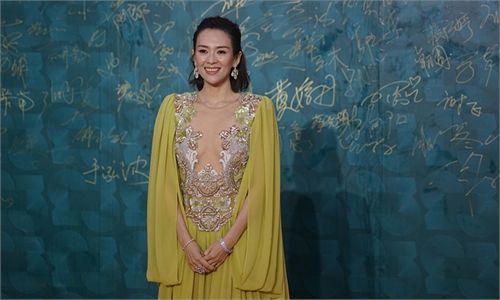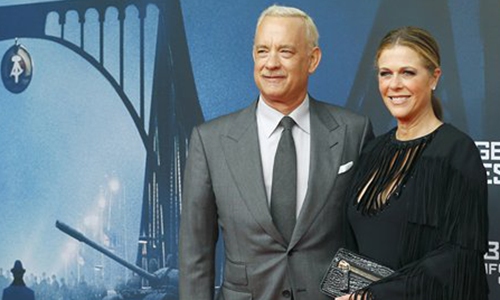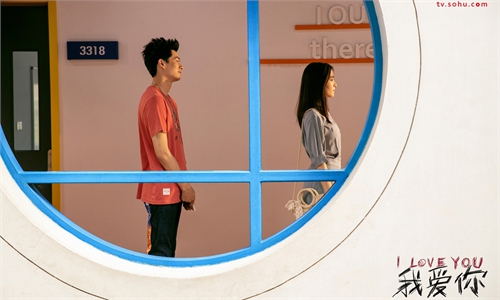
Chinese actors Chen Daoming (left) and Zhan Ruoyun (Right) pose for a photo with a poster of actor Wu Gang at a media event to promote Qing Yu Nian in Beijing on January 25, 2018. Photo: VCG
Qing Yu Nian, a popular Chinese costume drama adapted from the Chinese web novel of the same name, has been accused by Chinese netizens of plagiarizing content from the fantasy novel series The Twelve Kingdoms (1992) written by Japanese novelist Fuyumi Ono.
Netizens on China's Twitter-like Sina Weibo have been discussing a section of dialogue from Qing Yu Nian that some say bears a striking similarity to a paragraph from the Japanese novel.
The paragraph "to not yield when oppressed, to not be discouraged even when encountering disaster, to correct injustice without fear, do not yield and flatter the monsters" in the Japanese novel is being compared to Qing Yu Nian's "to be unyielding when abused by others, to not to be frustrated when disasters occur, if anything is unfair, be fearless in correcting it, do not flatter the vile."
While the words are different, the meaning and structure of both are very similar, which has sparked debate among netizens.
"Very similar meanings indeed, it definitely borrowed some ideas from The Twelve Kingdoms, but to call it plagiarism, I doubt it," said a netizen on Weibo.
"The paragraphs look almost the same, even their logic and structure are the same and you say it's not plagiarism?" posted another netizen who confronted Qing Yu Nian fans who claimed the TV drama merely used Ono's novel as a reference.
"It is hard to judge by just looking at the paragraph. Some writers do reference other author's work, but if the taken bit has been 'washed' thoroughly, and has no dramatic similarities, and the bit happens to be less important and has less function when evaluating it in the entire work, then, it is not easy to define it as plagiarism," said Xu Xinming, a lawyer specializing in copyright law, told the Global Times on Thursday.
"Describing a work as a pyramid - the spire is the idea, the concept of a novel, film and TV script; the foundation of the pyramid is the expression. If you use the expression, it is undoubtedly an infringement.
"In other words, the law protects expression, but not concept or ideas. But what is expression and what is concept, sometimes can be confusing and depends on the particular case," explained Xu.
Created by famous Chinese web literature writer Mao Ni, Qing Yu Nian is a well-rated alternative history novel that tells the story of a young man called Fan Xian and his life in the country of Qing. In 2019, the work was adapted into a 46-episode TV drama starring famous actors such as Zhang Ruoyun, Chen Daoming and Xiao Zhan, a controversial but popular Chinese star with nearly 30 million fans on Sina Weibo. In addition to the TV series, the IP has been adapted into other cultural productions such as animated works and games.
"What I worry about the most is, if the plagiarism scandal gains ground, will there be a second season? Please don't cancel it, I like the TV drama a lot," Tanni, a fan of the show in Beijing, told the Global Times on Thursday.
In 2020, the official production team for the show announced that a second season is in development and will likely air in 2022.



